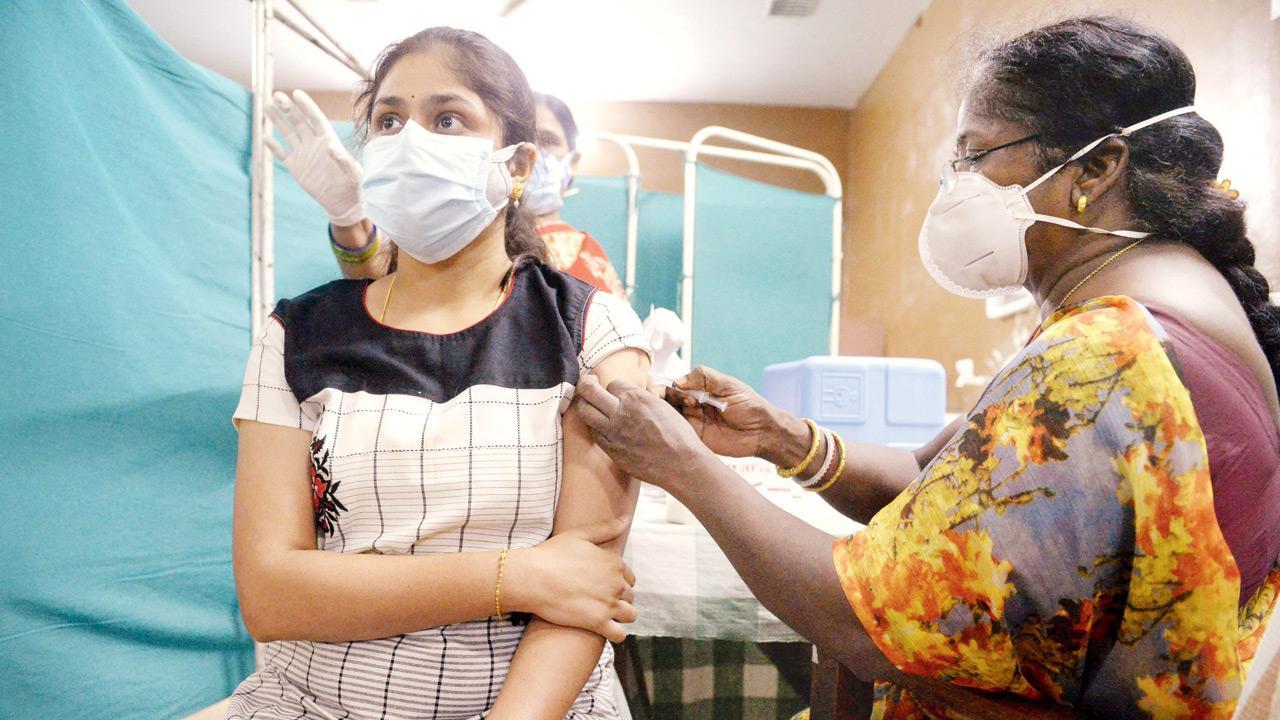Yes, they have the potential to save millions of lives, but since when has that been a priority in our country?

There have been people who kept disparaging the efforts of medical workers, harangued journalists for covering news related to poor healthcare facilities, and convincing anyone who would listen that Covid was no more deadly than a mild flu. Pic/AFP
I have been trying, and failing, to convince a few people in my life to get vaccinated. I began by insisting that they do, a few months ago, back when it was still possible for some of us to get that now elusive first shot. They vehemently refused at the time, saying they had no intention of injecting anything into their bodies without knowing what it was or what it could do to them. There were all kinds of rumours floating around, they explained, and they wanted to know what these vaccines were capable of doing before they submitted to the prick of an injection. Living was, apparently, not high on their list of priorities.
ADVERTISEMENT
As the months progressed, and it became increasingly clear that all the banging of plates we were asked to do a year ago would have no impact whatsoever, the same people began asking friends and neighbours about the possibility of a vaccine. They were still hesitant to take it, for reasons that still make no sense, but were finally ready to accept that something called Covid-19 really existed. Until then, it was something they laughed at on the way to a crowded store or leisurely stroll. I don’t know what convinced them but believe the cries of people whose relatives had died gasping for breath may have played a part.
For every Indian who tried to help someone in need—amplifying requests for hospital beds, making calls to dealers for oxygen cylinders, cooking and delivering meals to those too ill to care for themselves, offering free legal aid, patiently answering medical queries—there have been people who spent most of their waking hours disparaging the efforts of medical workers, haranguing journalists for covering news related to poor healthcare facilities, and convincing anyone who would listen that the virus was no more deadly than a mild flu.
These criminals—because anyone who directly or indirectly enables the loss of another person’s life should be tried in a court of law—were boosted by public figures who added their voices to the unnecessary clamour, preventing people from doing their jobs, threatening volunteers, and attacking anyone who dared to question the government’s undeniable incompetence.
I believe the problem lies in our high tolerance for charlatans. We are surrounded by them, applaud when they disguise acts of treason as proof of patriotism, and hand over our money when they ask us for support. This is the kind of behaviour that has allowed self-titled holy men across the country to get away with serious crimes. While some of them have encroached upon public land with impunity, others have launched dubious foundations worldwide to handle exchanges of vast funds, and still others have become business tycoons manufacturing everything from instant noodles to questionable concoctions for which they have never been called out.
It sometimes feels as if those images of Indians being cremated in their thousands on the banks of the Ganges or waiting for their turn in ambulances parked in lines outside cemeteries mean nothing to us. We don’t shy away from death; we shrug our shoulders and carry on with living even if those losses could have been prevented, because we have been trained to accept these tragedies as misfortunes beyond human control. We weep and turn our heads to the skies, asking our many Gods and Goddesses why they have forsaken us, because posing those same questions to our elected representatives tasked with ensuring our well-being is a right that has increasingly been withheld from us.
I live in the hope that naysayers and vaccine deniers among us will be called out for their actions at some point. I hope they come to terms with their actions and understand the consequences of what they enabled. I hope they can look into the eyes of people who lost loved ones and ask themselves if the peddling of propaganda and fake news was worth it. I also hope the con artists masquerading as spiritual gurus are someday held accountable.
Maybe vaccines really are overrated. They haven’t convinced millions of us to ask the right questions, allowed the most incompetent people in our country’s history to get away with murder, and failed to change our apathy towards monumental follies that consistently harm us. We should also abandon hope of getting those elusive second shots and simply wait until this nightmare magically disappears on its own. It is starting to feel as if that is the government of India’s official approach too.
When he isn’t ranting about all things Mumbai, Lindsay Pereira can be almost sweet. He tweets @lindsaypereira
Send your feedback to [email protected]
The views expressed in this column are the individual’s and don’t represent those of the paper.
 Subscribe today by clicking the link and stay updated with the latest news!" Click here!
Subscribe today by clicking the link and stay updated with the latest news!" Click here!






